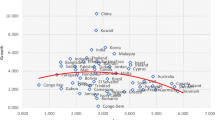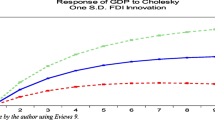Abstract
Both analytical models and casual empiricism suggest that the timing of the recessionary costs associated with inflation stabilization in chronic inflation countries may depend on the nominal anchor that is used. Under money-based stabilization, the recession occurs at the beginning of the program, while under exchange-rate-based stabilization the recession occurs later in the program. This paper provides a first attempt to formally test this hypothesis using a vector-autoregression model for Uruguay. The impulse response of output to different stabilization policies is broadly consistent with the "recession-now-versus-recession-later" hypothesis.




